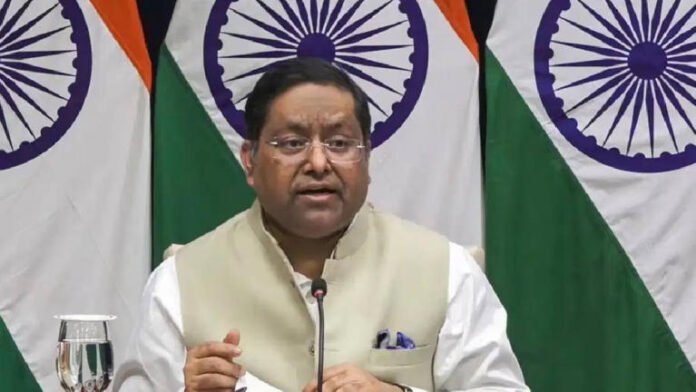India has once again found itself grappling with the emotional fallout of the ongoing Russia-Ukraine war, following the tragic death of a young man from Kerala. This incident has reignited concerns over the involvement of Indian nationals in foreign conflicts, and New Delhi has made an unequivocal demand for their safe return.
The deceased, identified as 28-year-old Anish Mathew, reportedly lost his life on the battlefield in Ukraine. Originally hailing from Ernakulam district in Kerala, Anish had traveled abroad in search of better opportunities but became entangled in the complexities of a foreign war. Reports suggest that he had joined the Russian forces under contract, a decision driven by economic hardship rather than ideological alignment.
This case has not only highlighted the risks faced by Indian expatriates but also raised questions about how young Indians are recruited into conflicts far from home. Following the news of Anish’s death, the Ministry of External Affairs (MEA) issued a strong statement demanding the safe and immediate return of Indian nationals caught in such precarious situations.
India’s Diplomatic Stance
India’s foreign policy has traditionally adhered to the principle of neutrality in international conflicts, focusing instead on protecting its citizens worldwide. In this instance, the government has taken a firm stance, emphasizing that Indian nationals must not be drawn into armed conflicts abroad under any circumstances.
“We are deeply saddened by the tragic loss of an Indian citizen in the ongoing Russia-Ukraine war. Our embassy is in touch with the local authorities, and we are making every effort to ensure the safe return of other Indians who may find themselves in similar situations,” said an official spokesperson of the MEA.
The government has also reiterated its commitment to safeguarding the interests of the Indian diaspora. Prime Minister Narendra Modi, during a recent public address, emphasized the importance of Indians abroad prioritizing their safety and well-being.
The Growing Trend of Recruitment
Anish’s story is not an isolated one. In recent years, there have been increasing reports of Indian nationals joining foreign armies or militias. While some are motivated by financial struggles, others are drawn by the promise of citizenship or permanent residency in the countries they serve.
Analysts believe that in the context of the Russia-Ukraine war, recruitment of foreign nationals has become a strategic necessity for both sides. Russia, in particular, has reportedly been reaching out to expatriates and immigrant workers to bolster its ranks as the conflict stretches on.
However, such recruitment raises ethical and legal questions. Indian law prohibits its citizens from participating in armed conflicts abroad without explicit government approval. The MEA has urged Indian nationals to remain vigilant and refrain from getting involved in activities that could jeopardize their safety and violate Indian laws.
The Human Cost
The death of Anish has left his family and community in Kerala devastated. “We never thought something like this could happen,” said a family member. “He went abroad to support us, and now we are left shattered.”
Local leaders have also expressed their condolences, while urging the state and central governments to increase awareness among young Indians about the dangers of such ventures. Kerala Chief Minister Pinarayi Vijayan has called for a thorough investigation into how Anish ended up in the conflict zone and pledged support for his grieving family.
Need for Proactive Measures
The tragedy underscores the need for India to adopt a more proactive approach in monitoring the activities of its diaspora, particularly in conflict-prone regions. Enhanced collaboration between Indian embassies and host nations could help identify and assist vulnerable expatriates before they find themselves in dangerous situations.
Moreover, awareness campaigns are essential to educate Indian nationals about the legal and personal risks of participating in foreign conflicts. The government could also consider offering financial support or alternative pathways for those driven to such choices by economic hardship.
A Call for Reflection
Anish’s untimely death is a stark reminder of the human cost of geopolitical conflicts. For India, it serves as a call to action to protect its citizens, not only by ensuring their physical safety but also by addressing the underlying factors that lead them into perilous situations abroad.
As the government intensifies its efforts to bring Indian nationals home, the incident also invites broader reflection on the global challenges facing expatriate communities. Ultimately, safeguarding the well-being of its people remains a cornerstone of India’s diplomatic and domestic priorities, even in the face of such tragic circumstances.

